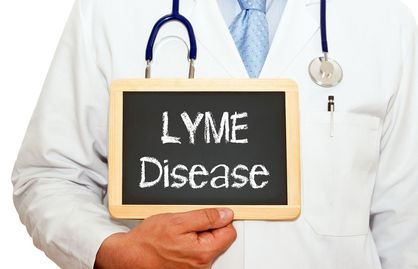Diagnosis of Lyme Disease
Testing for Lyme disease

Copyright: sinitar / 123RF Stock Photo
'The poor accuracy of the CDC-sanctioned two-tier serology test for Lyme disease (ELISA and Western Blot) has been a point of contention for years. This test is an indirect assay that measures the immune response but does not confirm the presence of an infection.
According to CDC, the two-tier test is inaccurate in the early stages of the disease and should not be relied upon for at least 6 weeks after a tick bite. CDC asserts that this test is highly accurate later in the disease, but a systematic meta-analysis of 20 years of published data showed a mean sensitivity of only 35.4% in the acute stage and 64.5% in the convalescent stage, with an overall sensitivity of only 59.5%. By comparison, the sensitivity for the HIV/AIDS antibody test is greater than 99%.
According to CDC, the two-tier test is inaccurate in the early stages of the disease and should not be relied upon for at least 6 weeks after a tick bite. CDC asserts that this test is highly accurate later in the disease, but a systematic meta-analysis of 20 years of published data showed a mean sensitivity of only 35.4% in the acute stage and 64.5% in the convalescent stage, with an overall sensitivity of only 59.5%. By comparison, the sensitivity for the HIV/AIDS antibody test is greater than 99%.
Patients with Lyme who test negative remain undiagnosed and untreated.
Untreated Lyme disease can cause neurological and cardiac damage and, occasionally, death.
The two-tier test does not detect most strains and species of Borrelia that are known to cause disease. This further contributes to misdiagnosis and underreporting.
Untreated Lyme disease can cause neurological and cardiac damage and, occasionally, death.
The two-tier test does not detect most strains and species of Borrelia that are known to cause disease. This further contributes to misdiagnosis and underreporting.
Disclaimer: LymeHope is dedicated to education and outreach on the subject of Lyme and related diseases in Canada and run by volunteers. We provide free information and support services to patients and caregivers as well as members of the public. The information that LymeHope provides does not replace your relationship with your doctor and in no way is intended to constitute medical advice. The information is for your general use, so be sure to talk to a qualified healthcare professional before making medical decisions or if you have questions about your health. We encourage Internet users to be careful when reviewing any medical information on the internet.
We do our best to make sure that the information we provide is accurate and reliable but cannot guarantee that it is error-free, complete or up to date. We include links to other organizations in Canada, U.S. and abroad for information purposes but we cannot endorse, recommend, authenticate or be held responsible or liable in any way for any information contained therein. LymeHope is not responsible for the quality of the information or services provided by other organizations and mentioned on lymehope.ca, nor do we endorse any service, product, treatment, medical professional or therapy.
We do our best to make sure that the information we provide is accurate and reliable but cannot guarantee that it is error-free, complete or up to date. We include links to other organizations in Canada, U.S. and abroad for information purposes but we cannot endorse, recommend, authenticate or be held responsible or liable in any way for any information contained therein. LymeHope is not responsible for the quality of the information or services provided by other organizations and mentioned on lymehope.ca, nor do we endorse any service, product, treatment, medical professional or therapy.

